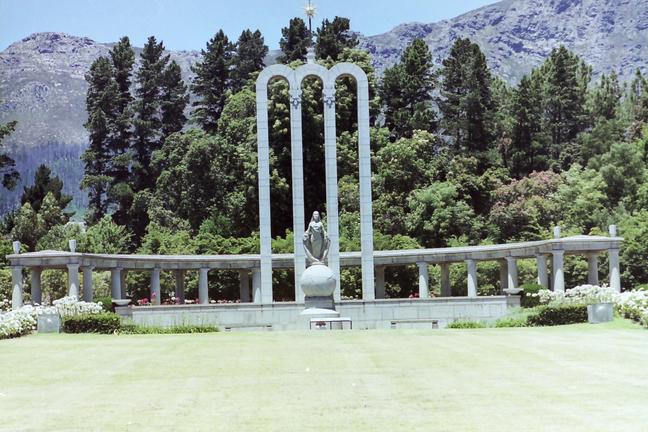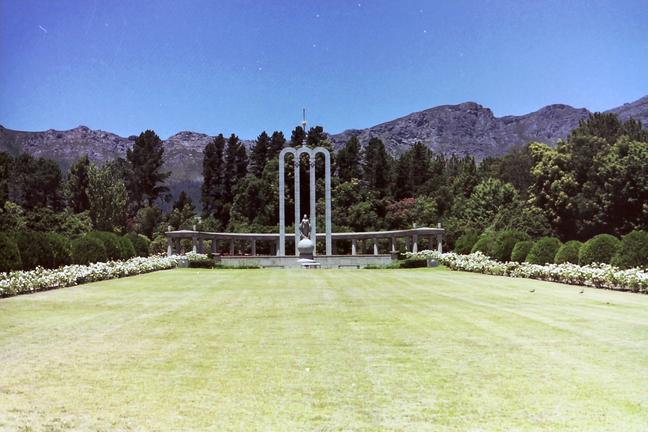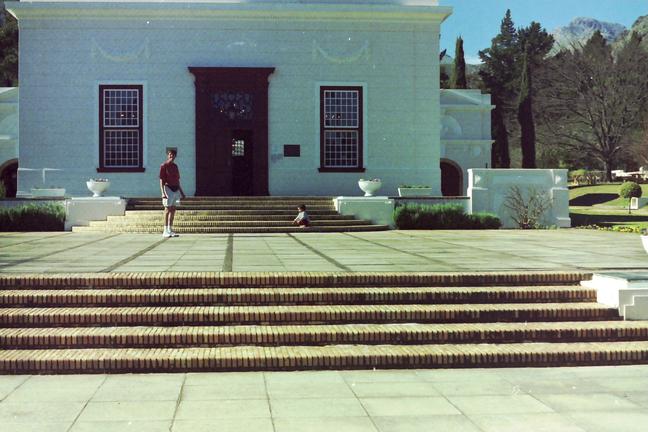The Huguenot Monument of Franschhoek.
Many of these settlers chose an area that was later called Franschhoek, (Dutch for French Corner), in the present-day Western Cape province of South Africa. A large monument to commemorate the arrival of the Huguenots in South Africa was inaugurated on 7 April 1948 at Franschhoek.
The official policy in the Western Cape was to fuse the Hugenot community and the Dutch community into one. When Paul Roux, the pastor who arrived with the main group of Hugenots died in 1724, the Dutch administration, as a special concession, permitted another French clerk to take his place "for the benefit of the elderly who spoke only French".
Many of the farms in the Western Cape province in South Africa still bear French names. There are many families, today mostly Afrikaans-speaking, whose surnames bear witness to their French Huguenot ancestry. Examples of these include: Blignaut, de Klerk (Le Clercq), de Villiers, du Plessis, Du Preez (Des Pres), du Toit, Franck, Fouche, Fourie (Fleurit), Gervais, Giliomee (Guilliaume), Gous / Gouws (Gauch), Hugo, Jordaan (Jourdan), Joubert, Labuschagne (la Buscagne), le Roux, Lombard, Malan, Malherbe, Marais, Minnaar (Mesnard), Nel (Nell), Nortje (Nortier), Pienaar,Retief(Retif), Rossouw Rousseau, Taljard (Taillard), TerBlanche, Theron, Viljoen (Villon) and Visagie (Visage). The wine industry in South Africa owed a significant debt to the Huguenots, many of whom had vineyards in France.


